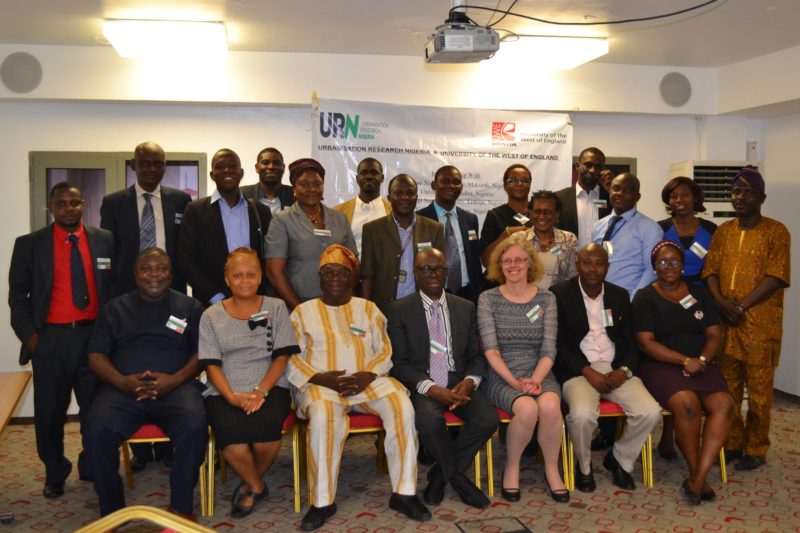How can resilience indicators inform climate adaptation policy and practice in Nigeria?
How far do the resilience indicators and key markers reflect relevant factors in the Nigerian context?
How should resilience indicators and key markers be weighted to reflect climate resilience in Nigeria?

These were the queries that participants at a recent forum in Lagos sought to unravel. They (the questions) appear to be the fulcrum of an ongoing study that is weighing the nexus between urbanisation and changing weather patterns in the country.
At the stakeholder validation workshop on a research themed: “Adaptation of Urban Infrastructure to enhance Climate Resilience in Nigeria” and held on Tuesday, April 25 2017, participants attempted to evaluate the present outcome and progress of the study.
The research is being conducted as a contribution to Theme “D” of the Urbanisation Research Nigeria (URN) programme, a four-year programme supported by the UK’s Department for International Development (DFID) and conducted by the University of the West of England (UWE), Bristol.
The project, which focuses on urban land, planning and governance, seeks to contribute to an enhanced system of urban planning, management and governance in Nigeria. The research is utilising published documents, online data and information and data collected through workshops and surveys in Calabar and Makurdi.
The intention, according to project promoters, is to contribute to the evidence base for better urbanisation strategy, urban policy, and urban programming and management in the West African country.
Apart from Theme “D”, the other three themes of the programme are: Theme “A” – Urban change processes; Theme “B” – Urban economic growth and infrastructure; and Theme “C” – Well-being of urban citizens.
“This research will contribute to the development of guidelines and tools to assist decision making regarding sustainable urban infrastructural development in Nigeria. Specifically, the research will contribute towards reducing and managing the various effects of climate change on urban settlements and the people as well as build capacities of planning authorities to guide the safer growth of cities within the context of Nigerian culture,” says Dr Jessica Lamond of the UWE, who is the Research Team Leader.
Dr. Olalekan Adekola, another researcher involved in the programme, stresses that the purpose of the study is to explore the potential to adopt integrated approach to minimise the impacts of climate change on humans and the ecosystems that support habitation.
His words: “Nigeria faces various climate related threats which are likely to have enormous impacts on the urban areas and make it harder for Nigeria to achieve her developmental goals. These impacts will be especially significant for cities due to combination of factors including vulnerability of infrastructures to flooding; poor drainage facilitates and water stress and scarcity. Integrating climate change adaptation into urban management plans and policies will be critical in the years ahead.”
Besides the UWE, the team also comprises researchers from the University of Ibadan, University of Calabar, and the Kaduna-based Urban Base Consulting.
